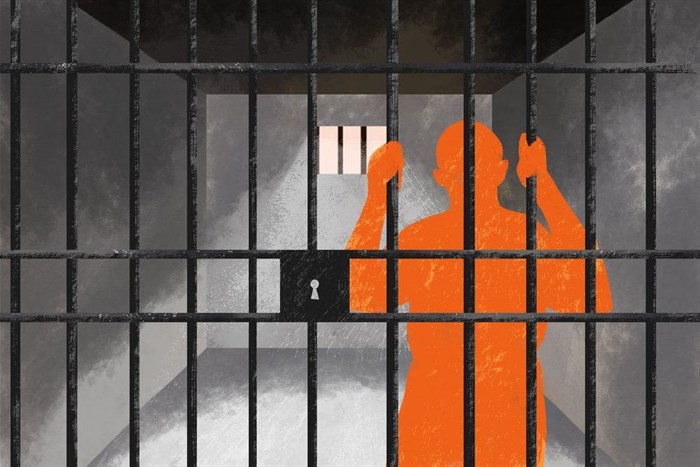
A victim of an attempted hijacking, who shot and killed one of his attackers, spent more than two years behind bars because the police suppressed evidence from the prosecution that he had acted in self-defence, the Johannesburg High Court has ruled.
Acting Judge Irene de Vos has ordered the Minister of Police to pay Ntokozo Patrick Xulu R2.6m for wrongful arrest and detention.
Xulu was detained for 813 days after an attempted robbery outside his home during which he shot and killed one of the hijackers, described in the judgment as “Mr Rodriguez”.
Xulu was arrested while on his way to a local police station to report the incident. He was pulled over by the police. He admitted that he had shot someone and he showed the officer his registered firearm. But in spite of his protestations that he had acted in self-defence, he was arrested and spent two nights in police custody before appearing in court.
He was denied bail.
Xulu said that even though most of the time he spent in jail awaiting trial was at the behest of the prosecutor, his claim was against the police, because the investigating officer had deliberately withheld his defence.
Judge de Vos said Xulu had told the police repeatedly that he had acted in self-defence. But the prosecution was unaware the person being charged had been a victim of an attack and had acted to protect his own life.
“His persistent refrain during his testimony was that 'I told them, but no one would listen to me. I was the victim of crime, but they treated me like a criminal'.”
He also told his version to “anyone who would listen” while he was in prison.
Judge de Vos said while Xulu’s initial explanation to the police might have seemed fanciful, the scales soon tipped in his favour.
She said he had just arrived home from work. The area he lived in was dangerous. He had first fired warning shots, but Rodriguez was undeterred. He then fired in the direction of Rodriguez. He then drove in the direction of Hillbrow police station to report the incident.
“Had he sought to flee the scene he did a terrible job of it. He should have gone in an entirely different direction,” Judge de Vos said.
“His version was accepted during his murder trial. His explanation of the attack and the warning shots he fired were confirmed by objective evidence in the form of cartridge cases found on the scene and ballistic reports.
“His acquittal came after he spent two years in Johannesburg prison waiting for his day in court.”
The police officers denied that Xulu had claimed he acted in self defence. But evidence, in the form of a cover letter sent to ballistics for testing of the cartridges a week after he was arrested, proved otherwise. In it the Commander of Crime Investigation Services in Hillbrow noted the date and time of the offence, stating a hijacker was shot “in the act”.
Judge de Vos said it was also improbable that Xulu would not have told the police.
“The police’s version is so improbable that it borders on implausible,” she said.
The Judge said the investigating officer had been asked why he had not informed the prosecutor of Xulu’s defence.
“His astonishing answer was that even if he had been told (of the defence), it was not his job to explain it to the prosecutor.
“This is at odds with our law. He failed in his public duty.”
The prosecutor, who testified in Xulu’s damages claim, had said if she had been informed of the defence she would have approached the matter differently.
Further, the conduct of the police had prevented the magistrate from applying his mind to the issue of bail.
Dealing with quantum, the judge said there was not one “glimmer of recognition of the impact on Mr Xulu’s life”.
“The police not only suppressed his evidence, they conducted a wholly inadequate and shoddy investigation and delayed the investigation for months on end with no reasonable explanation.
“This was the first time Mr Xulu had been arrested in his entire life. His detention shocked and traumatised him. He explained the inadequacy of the food he received, the assaults he suffered at the hands of other inmates, and the fear he lived in whilst detained.
“His youngest daughter, who relied on him for medical aid, was denied medical care, which broke his spirit.
“He lived in constant fear of gangs. He escaped a violent fight by hiding under his bed. He still bears the scar on his face as a result of this fight. It appears he suffered a mental breakdown. He explained that he was hungry, scared and cold. He lost more than two years of his life.”
The judge ordered the minister to pay Xulu R2.6m for wrongful arrest and detention.
She ordered the minister to pay the costs of the application on a punitive scale.
This article was originally published on GroundUp.
© 2023 GroundUp. This article is licensed under a Creative Commons Attribution-NoDerivatives 4.0 International License.

GroundUp is a community news organisation that focuses on social justice stories in vulnerable communities. We want our stories to make a difference.
Go to: http://www.groundup.org.za/